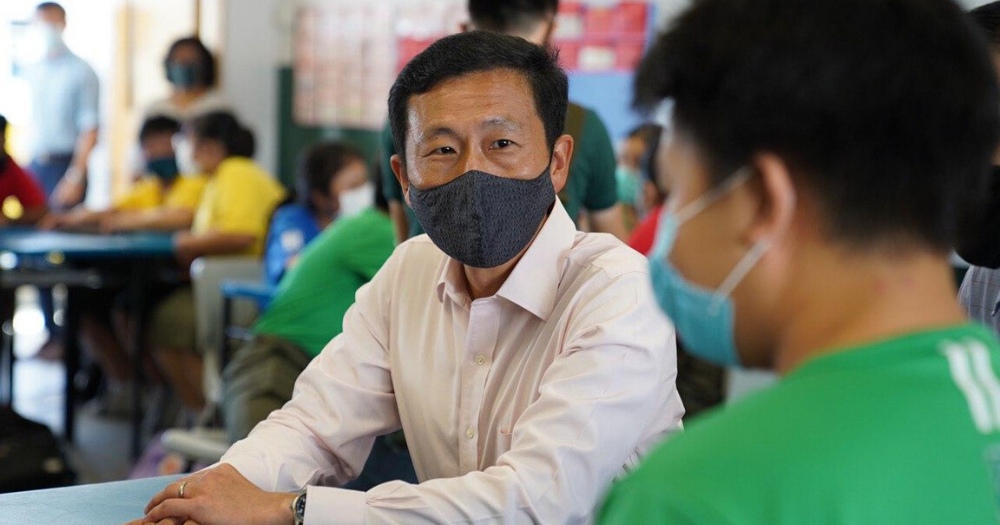In commemoration of Racial Harmony Day (RHD), which is coming up on Jul. 21, Minister for Education Ong Ye Kung visited Tampines Secondary School (TPSS) on Jul. 16.
During his visit, Ong participated in activities with two classes of students, shared his thoughts on how different generations deal with issues of race and religion, and gave students his advice about dealing with racial insensitivities and stereotyping.
Conversations about racial harmony, said Ong, should happen in schools not just on Racial Harmony Day, but also as a normal Character and Citizenship Education (CCE) course.
Visit to Tampines Secondary School
As Racial Harmony Day this year occurs during the one-week mid-term break, schools will commemorate the occasion the week prior, from Jul. 13 to 17.
In a doorstop interview with media, Ong said that normally, students would come to school wearing each others' cultural clothing and observing mock traditions. However, because of Covid-19, that is not possible this year.
Given the safe management measures in place, this year’s activities will largely take place through classroom-based activities and discussions. Like past years, said MOE, these activities aim to enable students to gain a deeper appreciation of racial harmony and social cohesion, within both the local and global context.
At TPSS, Ong joined a class of Secondary Three students in discussing how to deal with a variety of scenarios, such as what to do if someone were to comment to another student that they are "actually really smart for a Malay".
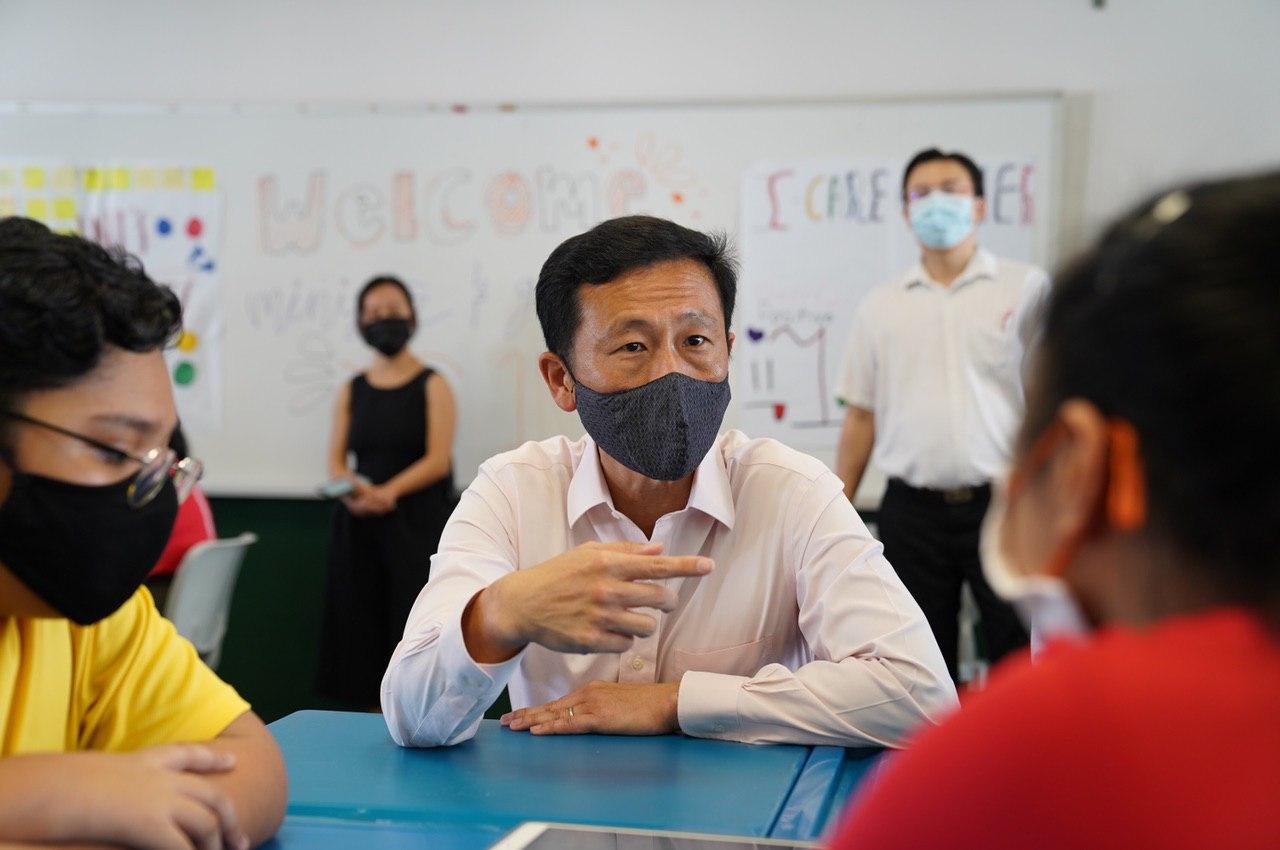 Photo by James Spencer.
Photo by James Spencer.
He also participated in a board game with a Secondary One class, in which students were asked to discuss and answer questions that made them question their assumptions and understandings about cultural diversity.
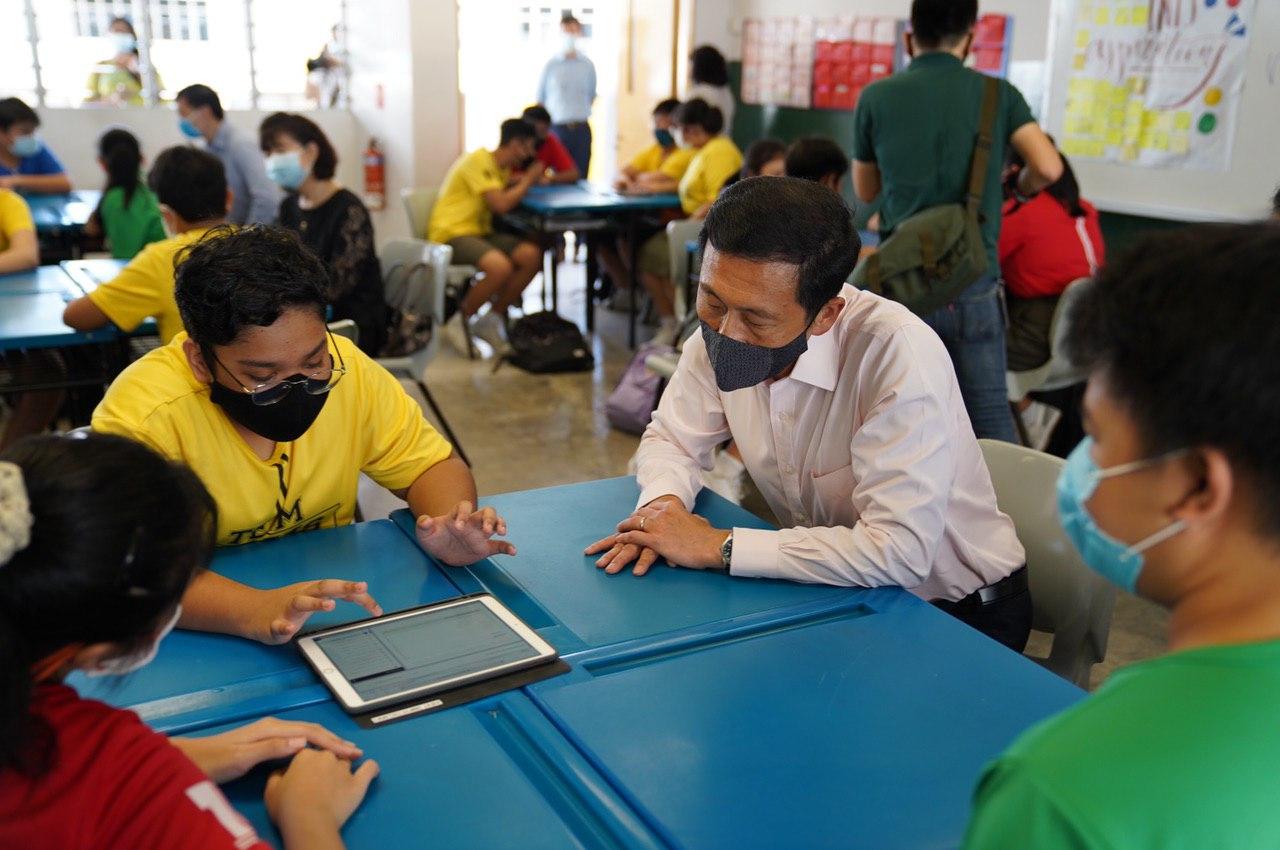 Photo by James Spencer.
Photo by James Spencer.
One example the Secondary One students discussed was what to do if they were in a lift and a grandmother commented to her grandson about a construction worker being "smelly" and having lice.
Ong then penned his reflection for the "TPSS Together!" wall, which showcased messages and videos of encouragement from students, staff and parents as a reminder to stay strong and united in the face of adversity. The messages covered the issues of both Covid-19 and racial harmony.
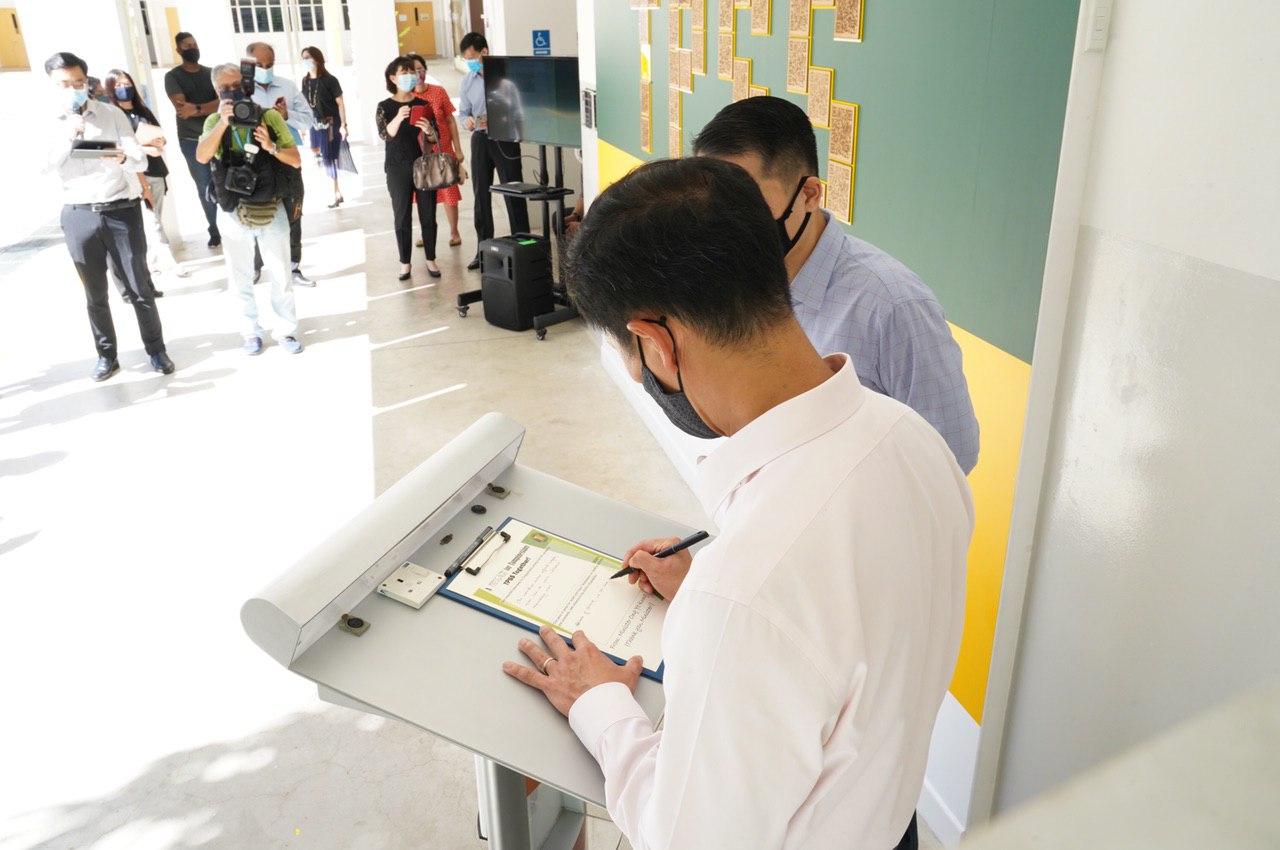 Photo by James Spencer.
Photo by James Spencer.
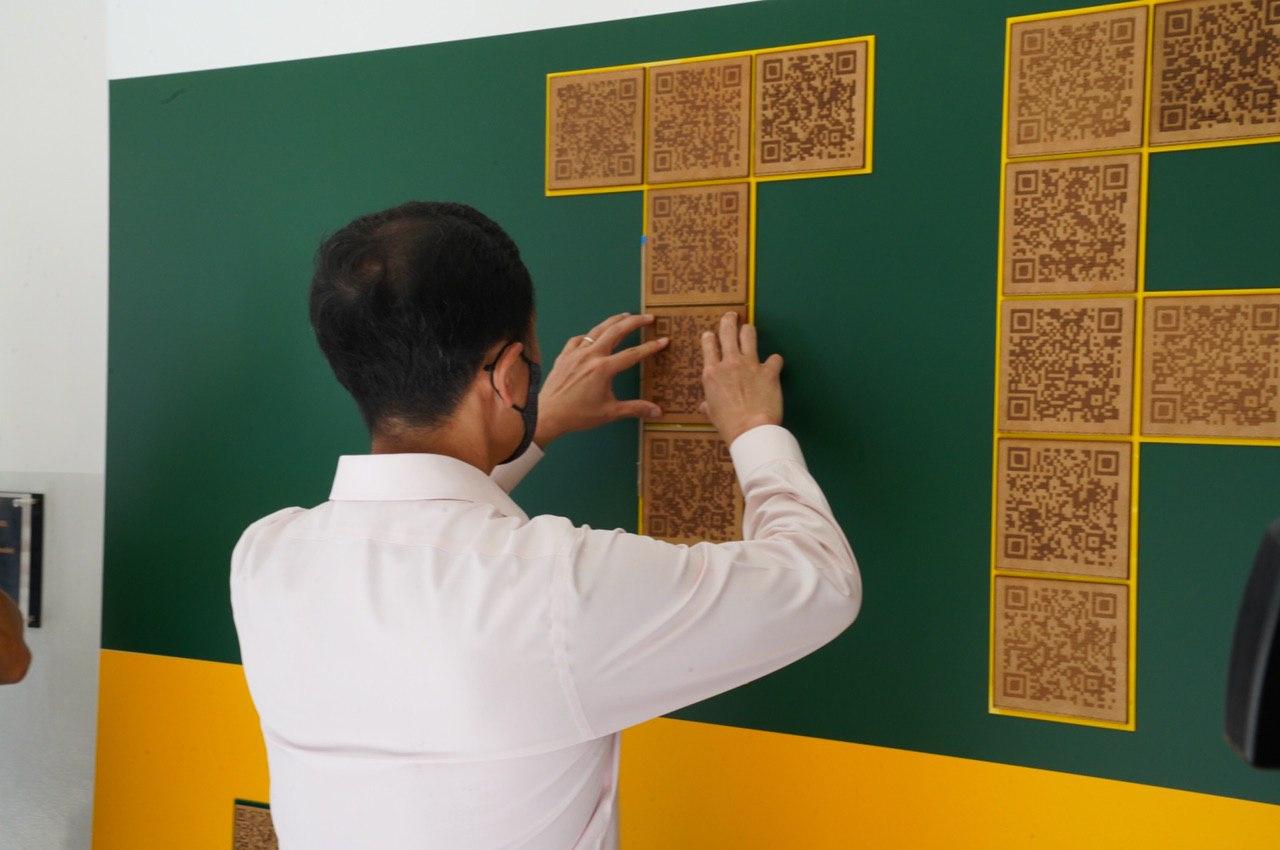 Photo by James Spencer.
Photo by James Spencer.
Ong then joined in with students during recess, taking selfies with them and watching an e-concert by the performing arts students.
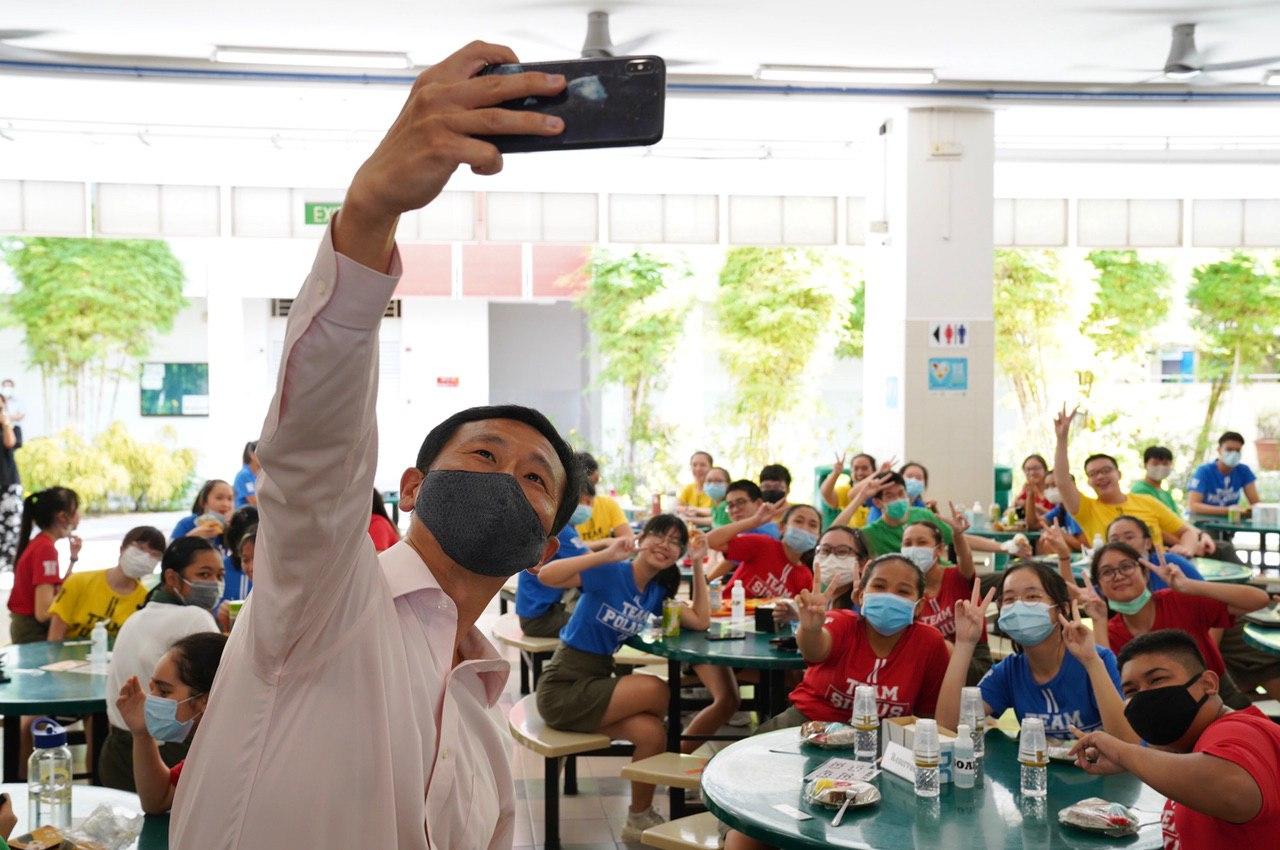 Photo by James Spencer.
Photo by James Spencer.
Conversations should extend past RHD
In his doorstop interview, Ong noted that many schools are having "respectful, well-facilitated, well-framed" discussions with their students, which he called a "very good development".
Ong said that MOE will support schools in educating students on issues of race and religion.
"We are encouraging all principals to hold more of such conversations in schools, not just during Racial Harmony Day, but do it as a normal course for CCE."
He added that teachers in every school are being trained to specialise in these subjects, in order to facilitate such conversations.
Generational differences in handling issues of race and religion
He noted that there is a difference between how various generations of people look at race and religion.
For instance, Ong said, the older generation, having experienced racial riots, doesn't talk about the topic very much. "For them, it's at the tolerance level," he said.
For his generation, on the other hand, it's much more about acceptance and appreciation of each others' cultures. However, he said that the conversations are still not there:
"[If] you ask people of my generation to sit down and have a conversation like that, it feels awkward, lah."
Ong recognised that the younger generation actually does want to talk about and address these issues, but that "they also need some guidance."
He emphasised, both in his doorstop interview and to the Secondary One and Three classes, that people should speak up if they think something is wrong, but in a respectful way that allows for dialogue, instead of shouting them down.
Ong also reminded people to remember Singapore's history. He said that while we are influenced by American media and conversations, Singapore is not America, and has a completely different history and context.
Related article:
Top photo by James Spencer.
If you like what you read, follow us on Facebook, Instagram, Twitter and Telegram to get the latest updates.
